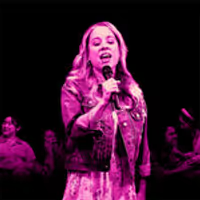Broadway Grosses: Week Ending 1/7/24
#25Broadway Grosses: Week Ending 1/7/24
Posted: 1/11/24 at 12:51am
I was at Harmony Saturday matinee and it was packed. It looked nearly sold out.
AEA AGMA SM
Broadway Legend Joined: 8/13/09
#26Broadway Grosses: Week Ending 1/7/24
Posted: 1/11/24 at 1:10am
Broadway Flash said: "I was at Harmony Saturday matinee and it was packed. It looked nearly sold out."
One “looked nearly sold out” performance a week is not good enough when the remaining seven are clearly not doing that business. Even in the old days before costs had ballooned to where they are now, producers would be very concerned about only selling 62% capacity.
#27Broadway Grosses: Week Ending 1/7/24
Posted: 1/11/24 at 6:49am
Broadway Flash said: "I was at Harmony Saturday matinee and it was packed. It looked nearly sold out."
Comps comps comps
pablitonizer
Leading Actor Joined: 4/8/21
#28Broadway Grosses: Week Ending 1/7/24
Posted: 1/11/24 at 8:06am
WldKingdomHM said: "Broadway Flash said: "I was at Harmony Saturday matinee and it was packed. It looked nearly sold out."
Comps comps comps"
Exactly. One of the actors is also giving away tickets if you just DM him
Fordham2015
Broadway Star Joined: 4/3/17
#29Broadway Grosses: Week Ending 1/7/24
Posted: 1/11/24 at 10:02am
The Ohio Saturday matinee was pretty full too (at least on the orchestra level). But I bet a lot of those people used a "buy one ticket, get one for $30" deal like I did
#30Broadway Grosses: Week Ending 1/7/24
Posted: 1/11/24 at 10:27am
You can't judge anything by a Friday night or Saturday houses....those will nearly always be more heavily attended then the rest of the week.
#31Broadway Grosses: Week Ending 1/7/24
Posted: 1/11/24 at 12:20pm
dramamama611 said: "You can't judge anything by a Friday night or Saturday houses....those will nearly always be more heavily attended then the rest of the week."
And if a show is reporting something like 60% capacity, but they're selling out their weekend shows, that means that their weekday shows are doing horrendous!
#32Broadway Grosses: Week Ending 1/7/24
Posted: 1/11/24 at 5:38pm
Somebody the other day told me they were at a Wednesday night performance of wicked, and said there were rows of empty seats all around them…
mshalo18
Featured Actor Joined: 10/29/22
#33Broadway Grosses: Week Ending 1/7/24
Posted: 1/11/24 at 6:06pm
Broadway Flash said: "Somebody the other day told me they were at a Wednesday night performance of wicked, and said there were rows of empty seats all around them…"
It's January, the weather has sucked and everyone is sick. Broadway week is coming, and people are holding off on seeing shows if they can.
That said, it grossed 2 million plus last week, and broke a house record at the Gershwin of over 4 million during Christmas week. I doubt anyone is worried about Wicked.
#34Broadway Grosses: Week Ending 1/7/24
Posted: 1/11/24 at 10:53pm
The thing is though, those seats could be filled. They’re too proud to put it up on tkts which is a shame because Wicked is always high on peoples list when they are waiting on line and are unaware that it’s not going to be available to them.
lopside
Stand-by Joined: 11/16/21
#35Broadway Grosses: Week Ending 1/7/24
Posted: 1/12/24 at 5:48am
I always keep meaning to ask, but are the ticket service fees included in these grosses?
#36Broadway Grosses: Week Ending 1/7/24
Posted: 1/12/24 at 7:52am
No, they go to the ticket sellers (the ones providing the actual service of purchasing tickets online)
lopside
Stand-by Joined: 11/16/21
#37Broadway Grosses: Week Ending 1/7/24
Posted: 1/12/24 at 8:18am
I'm just a little confused, because it's supposed to be ''gross gross'', and that includes some fees like the credit card ones.
Then there are productions like Merrily where the tickets are sold by the producers' platform itself (and quite a few others as well) and the tickets are displayed inclusive of the fees on the seat map.
#38Broadway Grosses: Week Ending 1/7/24
Posted: 1/12/24 at 10:34am
^I'm not expert on this, but my assumption would be that, because most Broadway venues have historically used 3rd party sites (meaning the producers never even touch that money at any point in the transaction), it's just standard practice to exclude those fees from the gross. So even when producers use in-house services, they still follow that standardized format. And it's functionally the same anyway, since those online ticketing services still cost money to operate, and that's still where the fees are going. Maybe you COULD lump that money in with both the gross and the running cost, but it cancels itself out, and would only make things more confusing when trying to compare grosses with the rest of the shows on Broadway who follow the other format.
The all-inclusive price display exists solely for the benefit of the consumer, and doesn't indicate anything about how their back-end finances are allocated.
#39Broadway Grosses: Week Ending 1/7/24
Posted: 1/12/24 at 11:08am
lopside said: "I'm just a little confused, because it's supposed to be ''gross gross'', and that includes some fees like the credit card ones.
Then there are productions like Merrily where the tickets are sold by the producers' platform itself (and quite a few others as well) and the tickets are displayed inclusive of the fees on the seat map."
That is due to a NY State law that specifies the total price inclusive of fees must be the price being advertised to a buyer. This rule was established within the past couple of years to protect buyers from clicking on a seat that says $50, and then when you get to the checkout page there's a $15 handling fee and a $5 venue fee, and suddenly your $50 seat is $70. The producer does not receive the fees associated with the ticketing platform; that is how the platform makes their money.
Merrily is not sold by the producer's platform. ATG is not a producer of Merrily, they are the landlord. And even when ATG is a lead producer of a show in their venue (such as Plaza Suite), that transaction/platform fee goes to the ATG entity, not to the production entity in which the show's investors participate.
When a ticket is sold, that money is in escrow until the curtain goes up on that night's performance, when the show's share of the money is transferred to the show's bank account. So if a show has a $10 million advance, that doesn't mean they have $10 million in the bank. This was one of the problems with the COVID shutdowns because the nonprofits (and other places where the venue and the producer are the same business entity) often don't put the money in escrow –– they spend it as they get it. So when March 13 rolled around, they had spent money they hadn't technically earned yet because the perfs hadn't happened, and it caused real problems when audiences (rightfully) demanded a full refund instead of a credit for a future performance.
JSquared2
Broadway Legend Joined: 3/23/17
#40Broadway Grosses: Week Ending 1/7/24
Posted: 1/12/24 at 11:43am
ErmengardeStopSniveling said: "
When a ticket is sold, that money is in escrow until the curtain goes up on that night's performance, when the show's share of the money is transferred to the show's bank account. So if a show has a $10 million advance, that doesn't mean they have $10 million in the bank. This was one of the problems with the COVID shutdowns because the nonprofits (and other places where the venue and the producer are the same business entity) often don't put the money in escrow –– they spend it as they get it. So when March 13 rolled around, they had spent money they hadn'ttechnicallyearned yet because the perfs hadn't happened, and it caused real problems when audiences (rightfully) demanded a full refund instead of a credit for a future performance."
That's not exactly true, either. The show does not receive the money after each night's performance. They do weekly settlements following the last performance of each week, and the production receives that week's ticket sales (less theatre rent, deductions, theatre employees, HVAC, etc.) the week following each week of performances.
#41Broadway Grosses: Week Ending 1/7/24
Posted: 1/12/24 at 11:47am
I was simplifying for the purposes of this conversation. The point being, the money is not "earned" until after the performance occurs.
lopside
Stand-by Joined: 11/16/21
#42Broadway Grosses: Week Ending 1/7/24
Posted: 1/12/24 at 1:39pm
I counted Merrily under the ATG umbrella because they have major stake in Friedman productions
Videos








